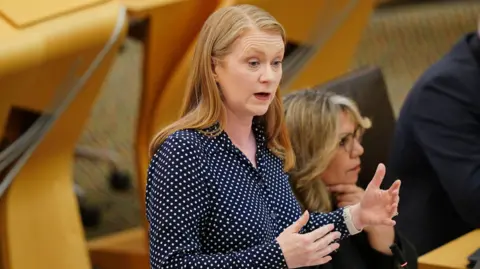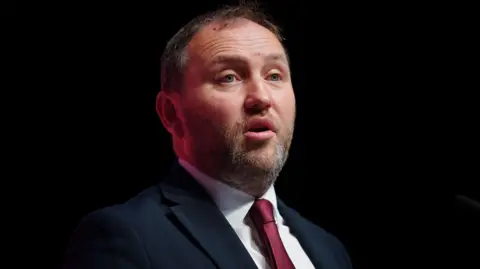Better-off pensioners able to opt-out of Scottish fuel payment
 Getty Images
Getty ImagesWealthier pensioners will be made aware of an option to decline Scotland's winter fuel payments - or donate them to charity, according to a Scottish government minister.
Social Justice Secretary Shirley-Anne Somerville said the universal approach of the devolved Scottish scheme was important, but she said the "difference" made by opting out would also be highlighted.
The current plan is for all pensioner households to receive at least £100 regardless of income, while those on pension credit will receive up to £305 depending on age.
The UK government's Scottish Secretary Ian Murray said "limited public funding" should not be spent on "millionaire pensioners".
Chancellor Rachel Reeves announced a major policy U-turn on winter fuel payments to pensioners Monday – months after it was cut as part of the UK government's autumn budget.
Under the new scheme, every household with a person over the state pension age in England and Wales and an income of up to £35,000 will receive £200 for those aged up to 80 and £300 for those aged over 80.
For those with an income of more than £35,000, the money will be recouped through the tax system.
The Scottish government launched its own winter fuel benefit last year in response to the original cuts which included extra support for those less well-off, but also a universal payment which is unaffected by income.
Under the plan, all households with a person over state pension age will receive an automatic £100 payment to help heat their homes.
For those on pension credits under the age of 80, that increases to £203, and rises again for those over 80 to £305.
It also includes an "opt-out" system for pensioners who are better off, meaning they can return the payment to the Scottish government or donate it to charity if they feel it is unnecessary.
 PA Media
PA MediaSomerville told BBC Radio's Good Morning Scotland the payment had been "deliberately tapered" towards those on lower incomes.
She said the Scottish government refused to "balance the books on the back of the most vulnerable," adding the "opt-out mechanism" had previously been effective.
"We will make sure people know about the opt-out mechanism, they are aware of it, they can recognise the difference made by putting that payment back or not receiving that payment in future years," she told the programme.
"We've seen when the winter fuel payment was cut originally, those who used the winter fuel payment to support charities right across Scotland.
"It's important to have a universal system but it's not necessarily important that everyone receives the same amount and that is exactly why the payment is tapered to those who are on pension credit, who are on the lowest incomes."
Somerville would not be drawn on whether the Scottish government would modify its scheme in light of the changes being made south of the border.
She said ministers were still waiting to assess the "funding implications" from the chancellor's announcement.
Murray said Scotland would receive more money, calculated "in the usual way" as part of the Barnett consequentials formula.
 PA Media
PA MediaHe said it was up to the Scottish government how that money was spent, adding the current Scottish version of the payment had been partially financed by a £5.2bn devolution settlement increase from Westminster last year.
But he said he did not agree with the decision to make payments regardless of income, given the pressures on other budgets.
"The government in Scotland made the decision to give that limited public money to millionaire pensioners and we don't think that is the right principle when public funding is tight," he said.
"But you can't have it both ways, you can't say that public funding is tight and make the decision on the money they have got available.
"We've got one in six Scots on NHS waiting lists, they're not spending it on that, we've got an increasing education attainment gap, they're not spending it on education, so Scottish voters have the right to ask where it is being spent and why is it not being spent on their priorities."
